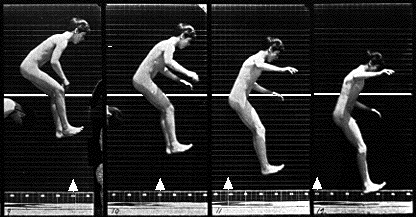The words to accurately express the complex sociological and philosophical studies of Michel Foucault do not exist within either the English language or his native French. He, therefore, has adopted pre-existing words and applied his own unique meaning to them in order to communicate the full range of his doctrine. One of these, perhaps most notably referred to in his book, The History Of Sexuality, An Introduction, is the slippery concept of discourse.
The majority of society defines the word discourse differently than do, ideally, Foucault and his students. His arguably problematic tendencies to reclaim facets of language for his own use forces his readers to first translate his utterances before deconstructing them. The broadness of his theory requires such a prerequisite to understanding. To begin with the commonly accepted definition of discourse before identifying its relationship with Foucault’s version of the word is useful as a reference point for understanding his jargon.
The Oxford English Dictionary has two listings for the word, as both a noun and a verb. This division is significant, in that it implies that discourse may be both had, and produced or created. As a noun, discourse is described as “A spoken or written treatment of a subject, in which it is handled or discussed at length; a dissertation, treatise, homily, sermon, or the like.” As a verb, discourse is both “To pass from premises to conclusions; to reason,” and, in closer accordance with its definition as a noun, “To hold discourse, to speak with another or others, talk, converse; to discuss a matter, confer.”
To begin, The Oxford English Dictionary’s use of the words “spoken” and “written” as necessarily linked to discourse is not in agreement with Foucault’s treatment of the term. The Foucaultian discourse is not limited to that which can be expressed verbally or textually. It can, and does, exist otherwise with the same importance as it can, and does, with formal language. In the first provided definition of discourse as a verb, the dictionary uses the terms “dissertation, treatise, homily, sermon, or the like” to describe discourse. These things are, no doubt, discourses. However, they do not define it. In addition to the manifestations of discourse provided by the dictionary, it lives in architecture (such as in the structure of the Panopticon which so fascinated Foucault), in graphic representations of ideas, in art, and in all of the things through which knowledge and power are transferred.
It lives in the body, which is commented on by Foucault on page twenty of The History Of Sexuality with the following- “Discourse, therefore, had to trace the meeting line of the body and the soul, following all its meanderings: beneath the surface of the sins, it would lay bare the unbroken nervure of the flesh.” Here, discourse explores and exposes the intimate relationship between a person and their body and, in context, their sexuality.
As pertaining to human sexuality, discourse is a regulatory force. It brings to surface the coveted details of one’s personal life, and in doing so, reflects back upon society with an assimilation of knowledge regarding normality. This circular process is a discourse unto itself, in fact. Relentless in Foucault’s commentary on sexuality is his belief that all people feel compelled to transform their sexuality in to discourse. This discourse then, in a sense, becomes a source of immense power regarding human sexuality as a whole. On page twenty-three, Foucault states, “…this carefully analytical discourse was meant to yield multiple effects of displacement, intensification, reorientation, and modification of desire itself.” This further illustrates his point that discourse creates a modification of sexuality, just as sexuality creates a modification of discourse.
Foucault’s concept of discourse is, quite literally, larger than life. It moves beyond specific subjects, and rather than allowing topics to define it, it produces objects of knowledge. This somewhat counterintuitive relationship between what is said (or not said) and what it is said (or not said) about is key to grasping discourse as according to Foucault. While discourse is so widely dispersed that it requires tangible objects to cling to, the need is not reciprocal.
“There is no binary division to be made between what one says and what one does not say; we must try to determine the different ways of not saying such things, how those who can and those who cannot speak of them are distributed, which type of discourse is authorized, or which form of discretion is required in either case,” states Foucault on page twenty-seven. Perhaps one of the most significant differences between the traditional and Foucaultian definitions of discourse is that, in the latter, what is unsaid is equally significant as what is explicitly expressed. Upon reading the word discourse severed from Foucaultian theory, it would be unusual to imagine the negative space as being as crucial as the positive.
The thesis of The History of Sexuality is inexorably linked with his definition of discourse. He, throughout the book, rejects what he calls the “repressive hypothesis”- the belief that society has repressed its sexuality since the nineteenth century. Rather, he argues, sexuality is highly prevalent in all discourses. There actually exists a certain discourse, a certain intimacy, between sexuality and discourse itself.
